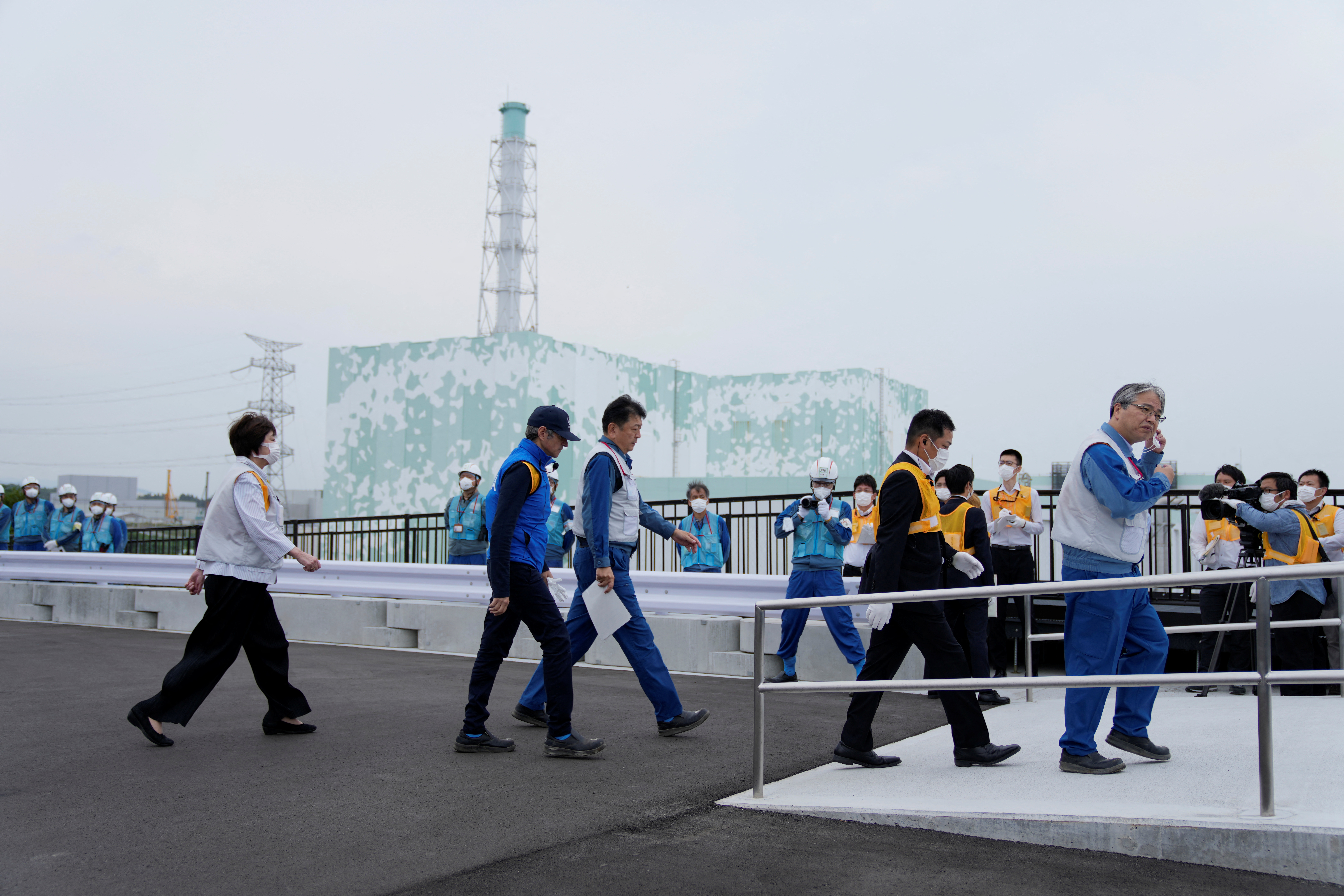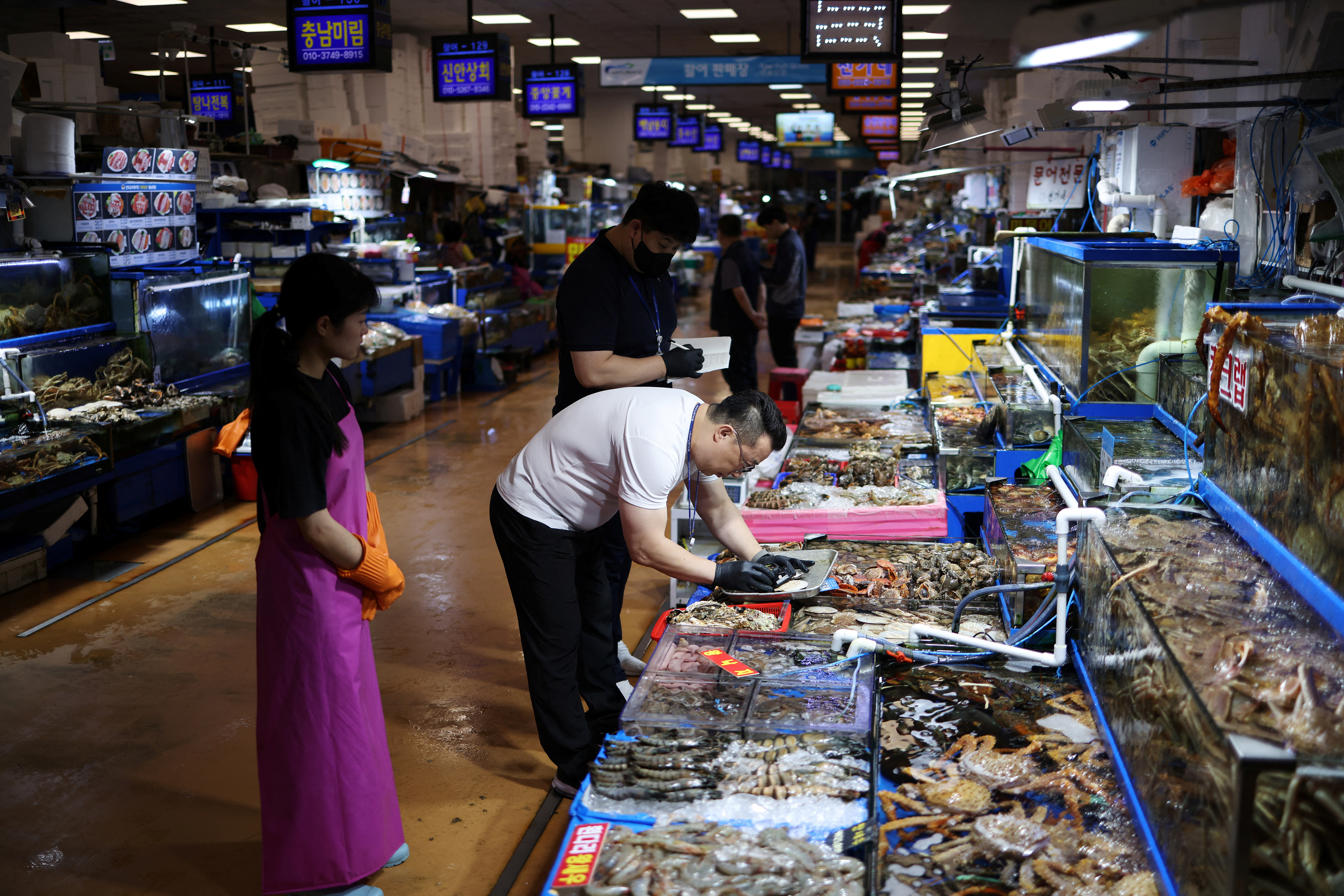
South Korea has said it believes Japan’s plan to release treated water from the destroyed Fukushima nuclear power plant will meet international standards days after a United Nations atomic agency review of the controversial proposal found it was safe.
Seoul said its own assessments – based on an inspection of the plant in late May, its own data and UN nuclear watchdog IAEA’s review – suggested the release of more than 1.3 million tonnes of radioactive water into the Pacific Ocean would be safe if it were carried out as detailed in the proposal.
“We have confirmed the concentration of radioactive material meets standards for ocean discharge … and therefore, the plan meets international standards including those of the IAEA,” Bang Moon-kyu, Minister of the Office for Government Policy Coordination, told in a briefing on Friday.
The proposal to release the water – most of it used to cool the reactors before being treated and stored in huge tanks around the site – has caused concern not only among Japan’s neighbours but also among many Pacific island nations, which are still dealing with the legacy of nuclear weapons testing.
Much of the concern centres around the potential risks from the radioactive isotope tritium, which is difficult to remove from water.
In its two-year safety review, the IAEA said Japan would dilute the water before discharge to bring the level below regulatory standards, adding that its experts would be stationed at Fukushima for any release, which is expected to take decades.
The plan was “consistent with relevant international safety standards … [and] the controlled, gradual discharges of the treated water to the sea would have a negligible radiological impact on people and the environment,” Director General Rafael Grossi said on Tuesday.
‘Scientifically impeccable’
Having secured the IAEA green light, Japanese media have said the release could start as early as next month.
But China has emerged as one of the fiercest critics of the plan, and in a response to the IAEA report, said it had “failed to fully reflect views from experts” who participated in the review. The state-run tabloid, the Global Times on Thursday quoted Senlin Liu, a Chinese expert on the agency’s technical working group, saying they were disappointed with the “hasty” report and that the expert input was limited.
Grossi rejected those claims on Friday.
“What we have published is scientifically impeccable,” he told the Reuters news agency on his return to Tokyo from a visit to Fukushima.
He stressed that the IAEA review was not an endorsement, but simply that “it was consistent with the standards”.
On Friday, China’s customs department announced a ban on the import of food products from 10 Japanese prefectures for safety reasons and said it would step up testing for radioactive substances.
South Korea has also maintained a ban on seafood products from around Fukushima.
Such bans have added to concerns within Japan, where fishing communities are particularly concerned about the impact on their livelihoods.

The IAEA’s Grossi is due to speak to the media on Friday before leaving for South Korea, New Zealand and the Cook Islands.
The Fukushima plant was ruined in the March 2011 tsunami that destroyed its electricity and cooling systems and triggered the world’s worst nuclear disaster since Chornobyl.
Most of the water comes from cooling the three damaged reactors, with an extensive pumping and filtration system known as the advanced liquid processing system (ALPS) extracting tonnes of newly contaminated water every day, filtering out most of the radioactive elements.
The tanks of treated water now crowd much of the site and Japan says it needs to start discharging the water because it is running out of space to store it.







